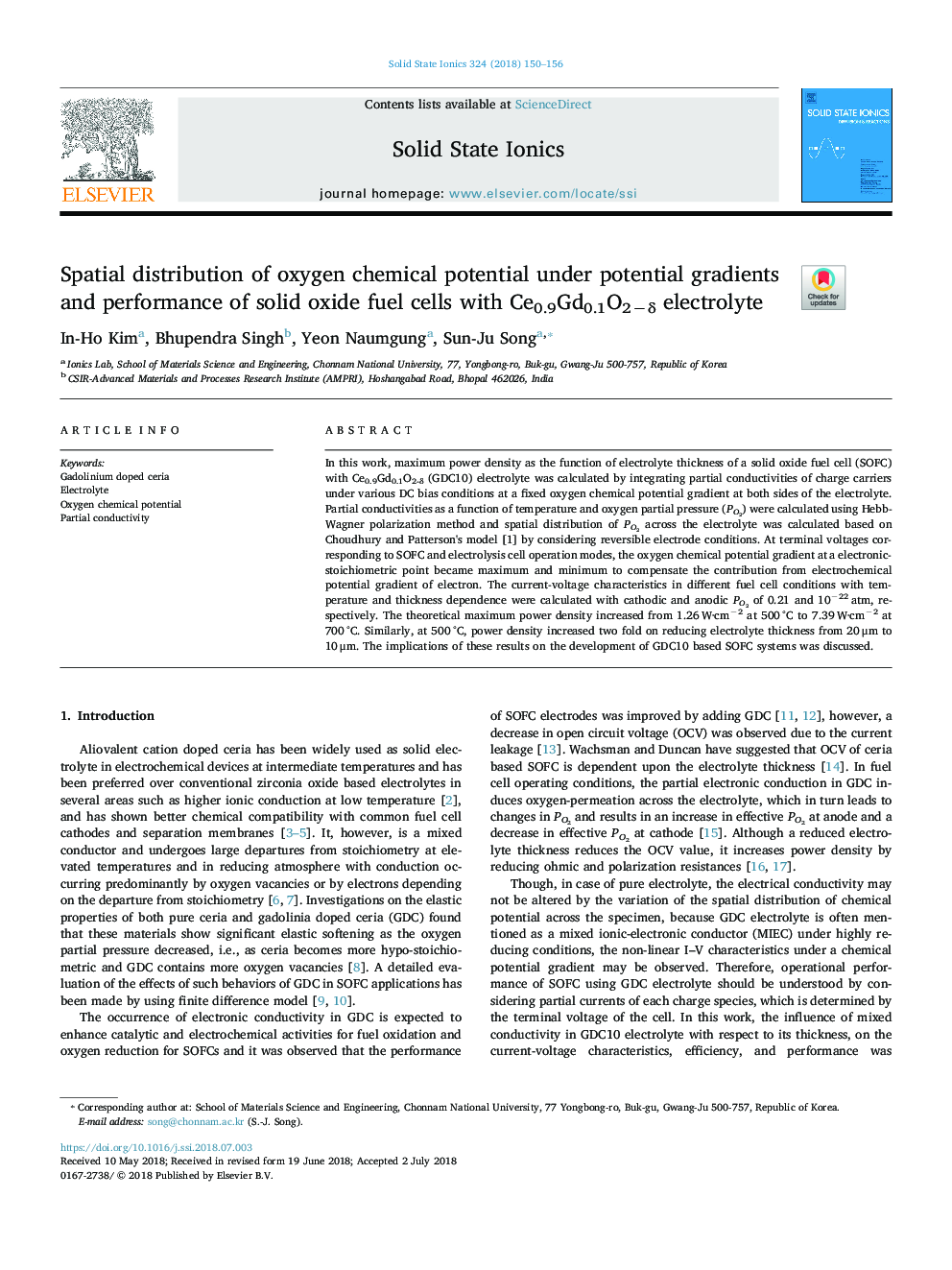| کد مقاله | کد نشریه | سال انتشار | مقاله انگلیسی | نسخه تمام متن |
|---|---|---|---|---|
| 7744193 | 1498219 | 2018 | 7 صفحه PDF | دانلود رایگان |
عنوان انگلیسی مقاله ISI
Spatial distribution of oxygen chemical potential under potential gradients and performance of solid oxide fuel cells with Ce0.9Gd0.1O2âδ electrolyte
دانلود مقاله + سفارش ترجمه
دانلود مقاله ISI انگلیسی
رایگان برای ایرانیان
کلمات کلیدی
موضوعات مرتبط
مهندسی و علوم پایه
شیمی
الکتروشیمی
پیش نمایش صفحه اول مقاله

چکیده انگلیسی
In this work, maximum power density as the function of electrolyte thickness of a solid oxide fuel cell (SOFC) with Ce0.9Gd0.1O2-δ (GDC10) electrolyte was calculated by integrating partial conductivities of charge carriers under various DC bias conditions at a fixed oxygen chemical potential gradient at both sides of the electrolyte. Partial conductivities as a function of temperature and oxygen partial pressure (PO2) were calculated using Hebb-Wagner polarization method and spatial distribution of PO2 across the electrolyte was calculated based on Choudhury and Patterson's model [1] by considering reversible electrode conditions. At terminal voltages corresponding to SOFC and electrolysis cell operation modes, the oxygen chemical potential gradient at a electronic-stoichiometric point became maximum and minimum to compensate the contribution from electrochemical potential gradient of electron. The current-voltage characteristics in different fuel cell conditions with temperature and thickness dependence were calculated with cathodic and anodic PO2 of 0.21 and 10â22â¯atm, respectively. The theoretical maximum power density increased from 1.26â¯W·cmâ2 at 500â¯Â°C to 7.39â¯W·cmâ2 at 700â¯Â°C. Similarly, at 500â¯Â°C, power density increased two fold on reducing electrolyte thickness from 20â¯Î¼m to 10â¯Î¼m. The implications of these results on the development of GDC10 based SOFC systems was discussed.
ناشر
Database: Elsevier - ScienceDirect (ساینس دایرکت)
Journal: Solid State Ionics - Volume 324, 15 October 2018, Pages 150-156
Journal: Solid State Ionics - Volume 324, 15 October 2018, Pages 150-156
نویسندگان
In-Ho Kim, Bhupendra Singh, Yeon Naumgung, Sun-Ju Song,